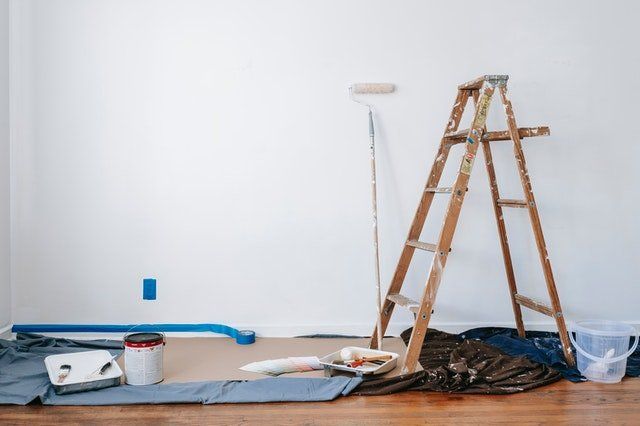Renting Out Your Home in Chicago: Everything You Should Consider

Are you thinking about renting out your Chicago home? If so, it could be one of the best decisions you’ll ever make! Owning a house comes with a myriad of benefits, including income diversification and gaining a source of passive rental income.
But before you decide to rent out your Chicago home, it’s important to familiarize yourself with how property management works. Properly managing your home can maximize your rental income, ensuring it becomes a reliable revenue stream.
If you aren’t fully prepared for the challenges property owners may face, renting out your house can impact your ability to generate consistent rental income and even lead to unnecessary stress.
The Following are Six Tips on How to Rent Out Your Property
Understand your obligations as a landlord
Being a landlord or renting out your house is not for everyone. Only landlords who are comfortable with their responsibilities as a property owner, including managing property taxes, maximizing tax deductions, and understanding how rental earnings affect their taxable income, are likely to succeed.
Below are Some Responsibilities of Chicago Landlords
- Taking care of repairs and maintenance. Landlords must adhere to certain habitability codes when leasing out a rental. As such, you’ll need to keep up with your tenant’s maintenance requests to ensure your house is always up to code.
- Collect monthly rent. This may seem like an obvious task for any landlord. However, rent collection is not always easy. You’ll need to use strategies that enable you to make rent collection consistent.
- Keep an eye on your tenant’s housekeeping skills. Rental
inspections are paramount to the success of an investment. You’ll need to carry them out regularly to ensure residents are adhering to the terms of the lease agreement.

These are just some of the responsibilities you’ll need to undertake when you rent out your home and start a rental business, but they are critical to ensuring you maximize your rental income as a landlord.
Ready Your Property for Renters
In competitive rental markets like Chicago, renters tend to be picky when choosing a rental home as the availability of homes or rental properties increases their expectations. In this case, a real estate investor needs to up their game by making their home irresistible to prospective renters.
So, how do you make your rental home appealing to potential renters? Well, there are several ways you can achieve this! Perhaps the most basic thing you can do is to thoroughly clean your house to ensure all scuffs, marks, and stains have been removed before a house showing.
Additionally, ensuring compliance with the Fair Credit Reporting Act during tenant screenings and investing in landlord insurance can help you protect your property while maintaining its appeal to renters.
Other things you can do include:
- Replace inefficient appliances with newer, efficient ones. Generally, landlords are encouraged to replace any appliance that is halfway through its lifespan.
- Take care of any repairs. Check for water leaks, broken door locks, malfunctioning light fixtures and other issues that could affect tenants’ quality of life or safety.
- Get rid of any pests. The presence of pests is a health risk for renters. So, before renting out your home, ensure that it is pest-free. Common pests include fleas, cockroaches, bedbugs, rodents and pigeons.

- Repaint tired-looking walls. Painting is relatively cheap when compares to other upgrades and has the potential to completely transform the look and feel of your Chicago home!
Understand Your Legal Obligations
Just like other states, Illinois has a statewide
landlord-tenant law. Under local landlord-tenant laws, some of the legal responsibilities you have to your tenants include:
- Ensuring that they live in a habitable rental home. This means ensuring your rental unit is safe, sanitary and fit for occupancy.
- You must also make requested repairs within 14 days of being notified of the issue. If you don’t make repairs within this timeframe, your renter may choose to exercise their rights. These include actions such as withholding rent or making the repairs themselves and deducting the expenses from future rental payments.
- Adhering to the Illinois Fair Housing Act. In addition to the protected characteristics under federal laws, Illinois’ Fair Housing Act includes some extra protections. They are ancestry, age, military status, marital status, gender identity, pregnancy, domestic violence history, and sexual orientation.
- Following the state's tenant eviction process. Illinois has a statewide
eviction law that every landlord must follow. Examples of illegal “self-help” evictions include turning off the heat, removing the front door, and removing the tenant’s belongings from the premises.

Other pieces of legislation to adhere to include those on security deposits, landlord entry, mandatory disclosures, and the changing of locks.
Start Marketing Your Chicago Rental Property
Once you’re done straightening out your house, develop a list of features that help make it attractive. You can use the items on your list as selling points while creating your rental ad. Some desirable features renters are on the lookout for include an affordable rent price or rental rate,
air conditioning, washer and dryer access, and parking space.
Also, certain words and adjectives can help you improve your rental ad’s click-through rates! These words include:
- Vaulted ceilings
- Stainless steel appliances
- State of the art
- Granite
- Hardwood floors
Make sure to only use words that are appropriate for your rental listing.
Next, landlords can post a rental ad on reputable websites, place For Rent signs on the house, and run ads in local dailies. Alternatively, you can hire a professional property management firm to handle the property’s marketing on your behalf, ensuring that the lease is signed by qualified tenants.
Screen Tenants Carefully
Not every potential tenant you’re going to come across will be a good fit for your Chicago investment home.

If you don’t screen potential tenants, you can end up renting to a nightmare tenant. From refusing to pay rent to causing all manner of damage, bad tenants can cause you many sleepless nights.
This can lead to lost income and increased expenses for repairs, legal fees, and other unforeseen costs. To be a successful landlord, you’ll want to rent to a tenant that meets certain criteria to help minimize your expenses and protect your investment.
The following are questions you’ll want to ask when screening tenants:
- Does the prospective tenant have a good credit report rating?
- Do they make sufficient income to pay their security deposit and rent my home?
- Why is the tenant moving out of their previous rental?
- Do they have a criminal background?
The answers potential tenants give to these questions will give you an idea of the kind of tenants you’ll be dealing with, and whether they'll uphold their end of Illinois' landlord-tenant law.
Hire an Experienced Property Management Company
You can also hire real estate agents. While renting out your Chicago home can seem like an easy task, managing a rental home can be very complex.
Finding a great tenant, abiding by the local laws, creating a thorough lease agreement, and even collecting rent can prove to be exceptionally daunting for beginner landlords.
The cost of managing a rental home can quickly add up, especially when you have to determine legal obligations, maintenance, and tenant issues. Additionally, hiring professionals can help you determine the right cost for your property and avoid potential pitfalls.
It’s important to also remember that your rental property can be a source of money, but you’ll need to properly manage the cost of running it to maximize your return on investment.
Hiring an effective property management firm can help you in all aspects of property management. From finding tenants and drafting lease agreements to collecting rent and security deposits, you’ll have nothing to worry about with a professional property manager on your side!
Bottom Line
Renting out your Chicago home can be a wise financial move. The extra cash flow from your rental property can help you save money or even pay off your mortgage! MTD Property Management is a Chicago residential property specialist. We provide sophisticated property management with a personal touch.
Get in touch today for more information on what we can do such as helping you craft your lease agreements!
Disclaimer: This blog post is not intended to replace professional legal advice. At the time of reading, laws may have been updated or changed. If you require legal assistance we recommend you reach out to a reputable law firm or property management company.









